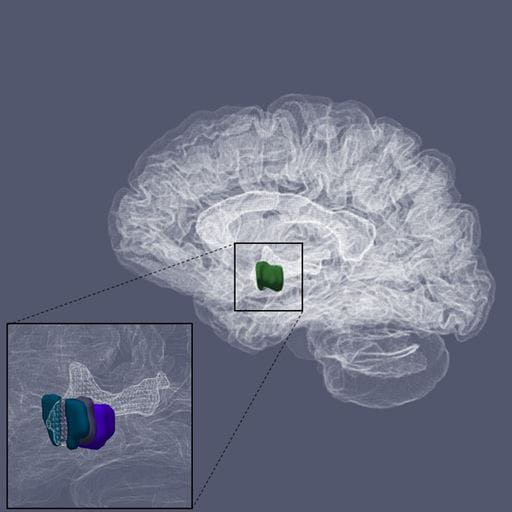Caring dads have different brain structure to other fathers
-
Date
Thu 11 Nov 21

Caring confident dads who want to spend more time with their children have different brain structure to other fathers, a study involving University of Essex researchers has revealed.
They discovered men who want to be actively involved in childcare and enjoy spending time with their kids have a larger hypothalamus.
This almond-sized area is largely responsible for homeostasis – keeping the body alive and healthy – but is also a key region for attachment and parenting.
It is not known whether spending time with children increases its volume in fathers or more involved dads are born biologically different.
However, it is hoped the research – which has examined its size in fathers of kids aged five to six for the first time – will help better understand father-child relationships.
The studies were led by Dr Pascal Vrtička, from the Department of Psychology, who worked with researchers from the University of Calgary, and Leibniz Institute for Resilience Research at Mainz, Germany.
He said: “In many societies, dads’ involvement in parenting has dramatically increased.
“Men wish to spend more time and more closely bond with their children. They want to become more involved and confident fathers.
“We have now shown that these caregiving beliefs can be traced deep within dads’ brains.”
As part of the study 50 dads’ brains were scanned. Fathers were also asked to fill out two questionnaires that assessed their caregiving beliefs and how much they enjoy spending time with their kids.
Findings revealed the higher that dads scored in both quizzes the larger their hypothalamus volume was.
Dr Vrtička and his team also discovered that men who strongly believe fathers are capable parents and should be involved in child development have more synchronised brain activity with their offspring.
The same fathers, plus 16 others, were previously tested with hyperscanning as they solved puzzles with their children.
It emerged that dads’ and kids’ brains were more in sync when the men more strongly believed they were capable and involved fathers.
Dr Vrtička added: “Dads - like mums - are biologically wired to be parents. Our data revealed that this can be seen in dads’ brain anatomy as well as brain-to-brain synchrony with their kids, and especially so for more confident and involved fathers.
“It therefore seems very relevant and justified to promote the importance of dads’ involvement in childcare in a broader societal context and to support them as much as possible.”
Dr Vrtička worked with Madison Long, now a PhD student at the University of Calgary, and Lara Puhlmann of the Leibniz Institute for Resilience Research, Mainz, Germany.
The study took place at the Max Planck Institute for Human Cognitive and Brain Sciences in Leipzig, Germany.
The findings were published in Social Neuroscience and released online on October 27.
.jpg?mh=500&mw=500&hash=6568B6C9CCF5290A596BEF6678B6AD0E)



